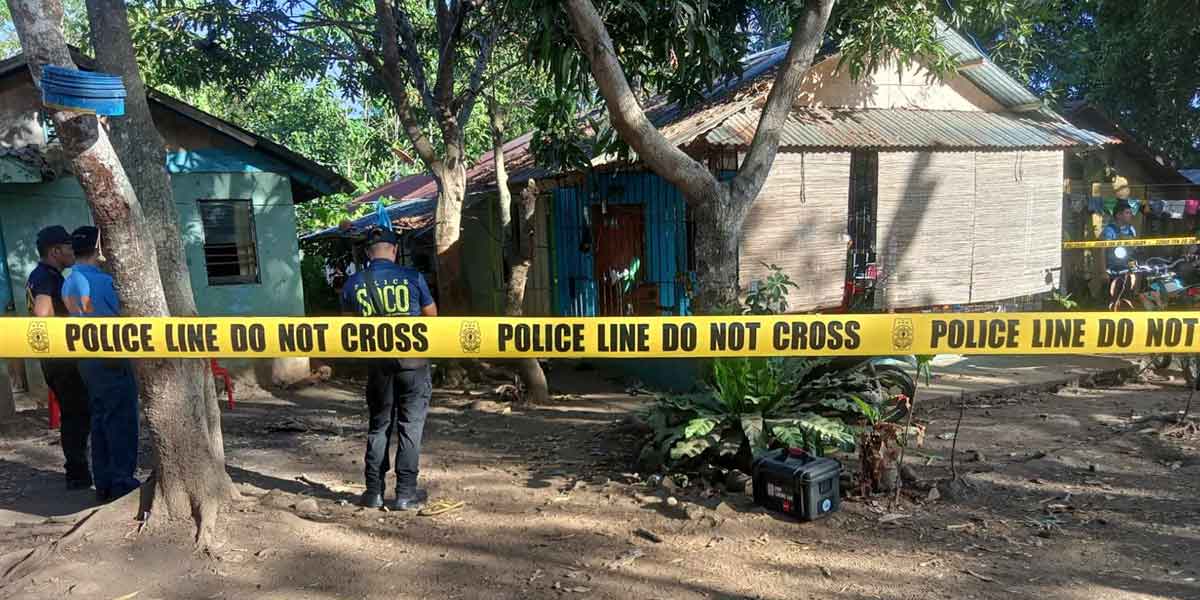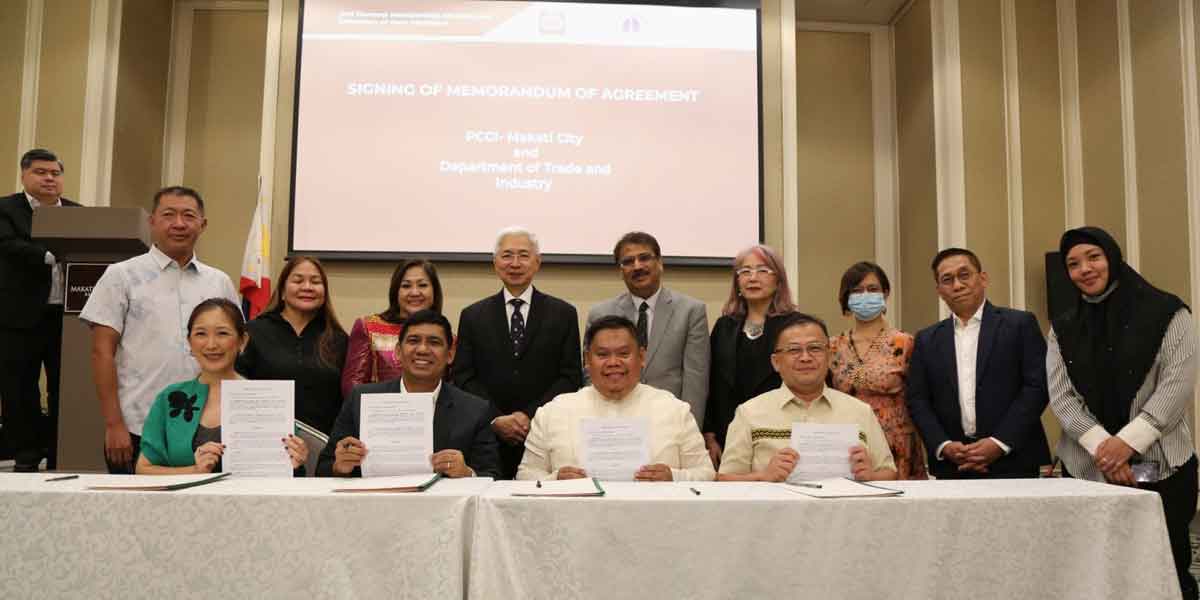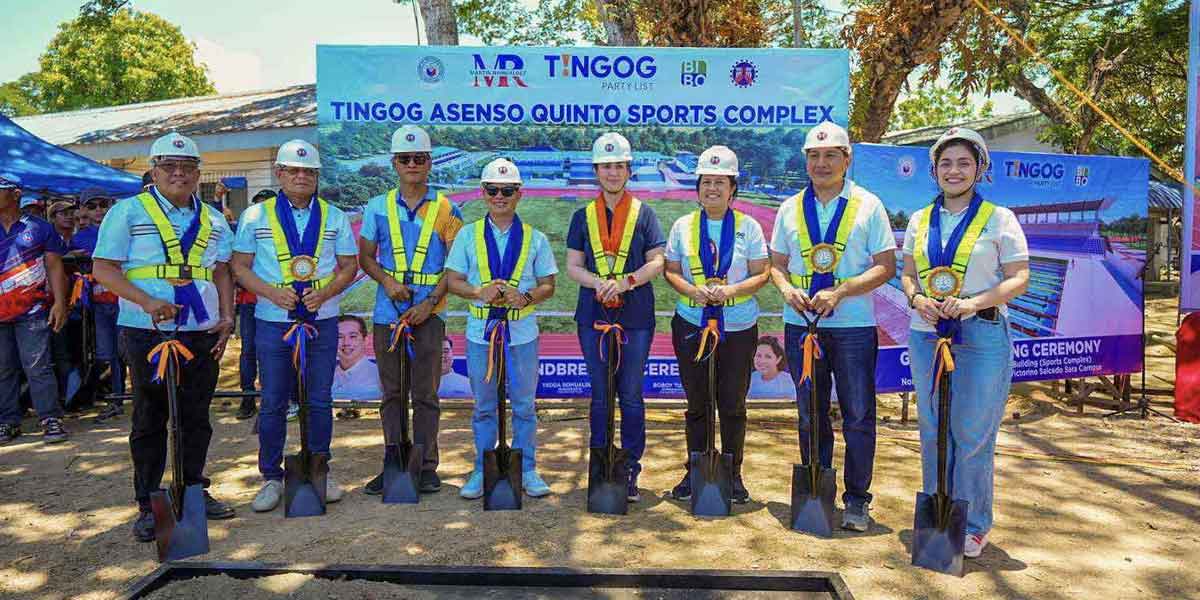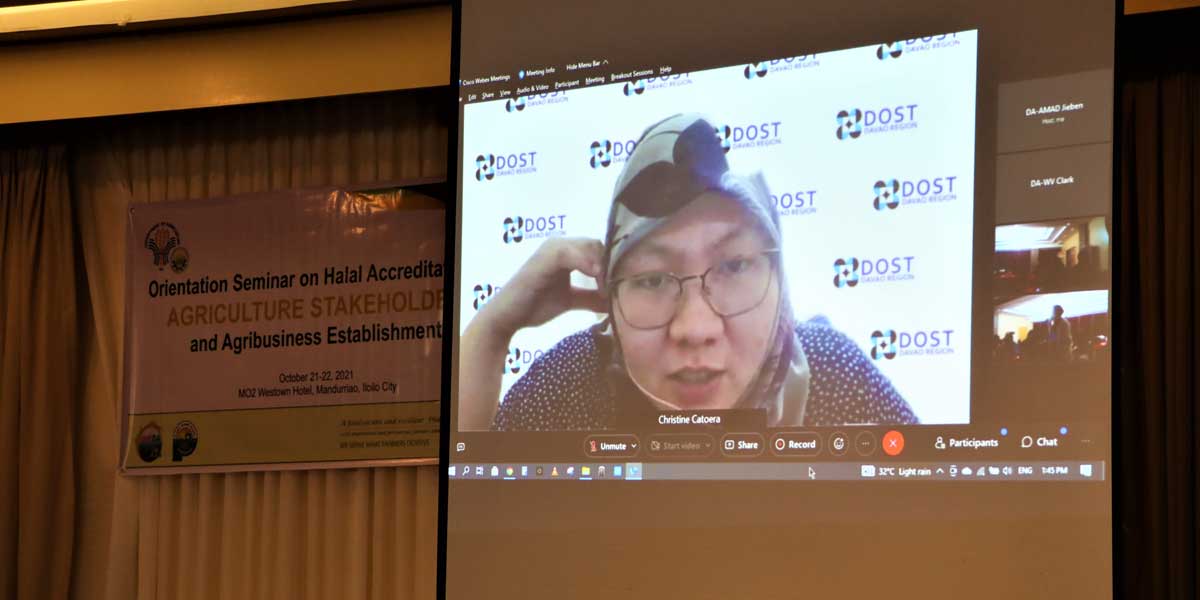
The Department of Agriculture – Western Visayas (DA-WV) conducted an orientation on Halal Accreditation for Agriculture Stakeholders and Agribusiness Establishment from October 21 to 22 in Iloilo City.
The event aims to foster awareness among key players in the region’s agribusiness industry on the standards of Halal food production and to generate responses from the stakeholders in implementing DA Halal-related initiatives and programs.
Department of Science and Technology (DOST) Region XI Halal industry management auditor Christine Esther Flor Leaño Catoera explained the fundamentals of Halal and the implementing rules and regulations of The Philippine Halal Export Development and Promotion Act of 2016 (RA 10817) as well as the standards and procedures in the Philippine National Halal Certification and Accreditation.
“There are several conditions when certifying for Halal. The application shall include the existing valid registration of the enterprise, business permits from the LGUs. The enterprise must be in full operation before it applies for certification. Also, the production and handling of Halal products must comply with the specified Halal standards, ensuring that the sources of ingredients are Halal certified. Likewise, ensure that a recognized Halal certificate must accompany the application for repackaging. Halal certificate issued by HCBs is valid for three years subject to annual periodic audit,” Catoera said.
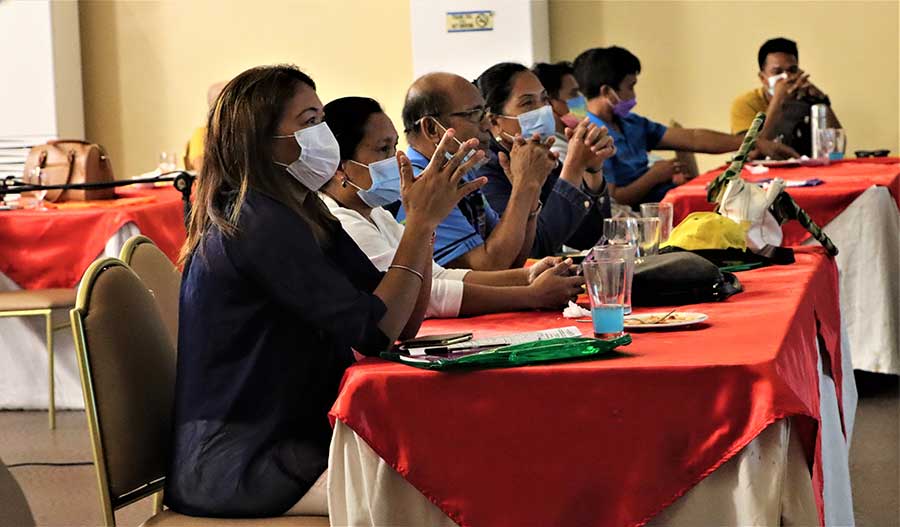
Deploying a blended learning approach, the 50 participants present in the physical venue and the virtual platforms understood that Philippine Halal certification guarantees that the product has passed international food safety standards and has complied with Islamic dietary requirements from preparation to packaging and handling. Halal Certification Bodies (HCBs) ensure the integrity and quality of the products.
“This is our way of supporting the Halal industry in the region, especially the processors. The activity creates awareness among the key players of the agribusiness industry such as the suppliers, producers, farmers, LGUs, and the livestock auction market managers and handlers,” said DA-WV Senior Agriculturist Clark Melendres.
He is eyeing a gradual implementation of Halal export and accreditation in the region given the positive support shown by partners during the seminar.
“We are targeting the international market; we need competitiveness of our local products,” he added.
The national government promotes the growth and ensures the integrity and quality of Philippine Halal exports, exercising police power over trade malpractices, developing and promoting Halal industries, and protecting consumers and users from unscrupulous and unfair agricultural, manufacturing and trade practices.
As part of the extension support of the LGUs, they are urged to identify the niche markets for Halal products in their areas to help farmers and agripreneurs spur opportunities in the Halal industry. (Maria Corazon Buala/RAFIS-6).

